Extinction - Definition, Examples, Quiz, FAQ, Trivia
Discover how and why species disappear and what we can do to protect biodiversity
What is Extinction?
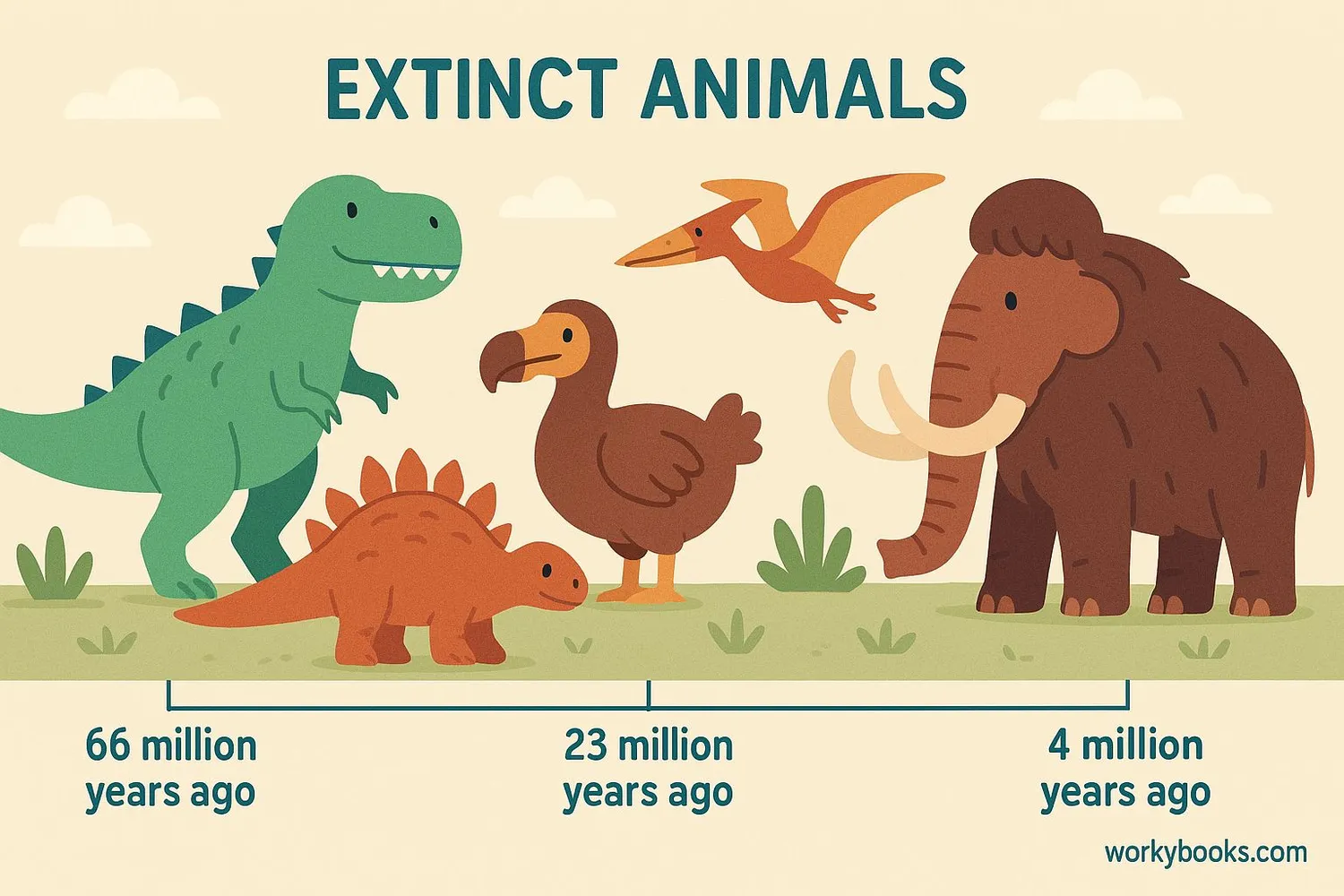
Extinction is when an entire species completely disappears from Earth. This means that every single animal or plant of that kind has died, and there are none left anywhere in the world.
Think of extinction like a book that can never be written again. Once a species goes extinct, it's gone forever. Extinction is a natural process that has happened throughout Earth's history, but today it's happening much faster because of human activities.
Did You Know?
Over 99% of all species that ever lived on Earth are now extinct! Most disappeared long before humans existed.
Causes of Extinction
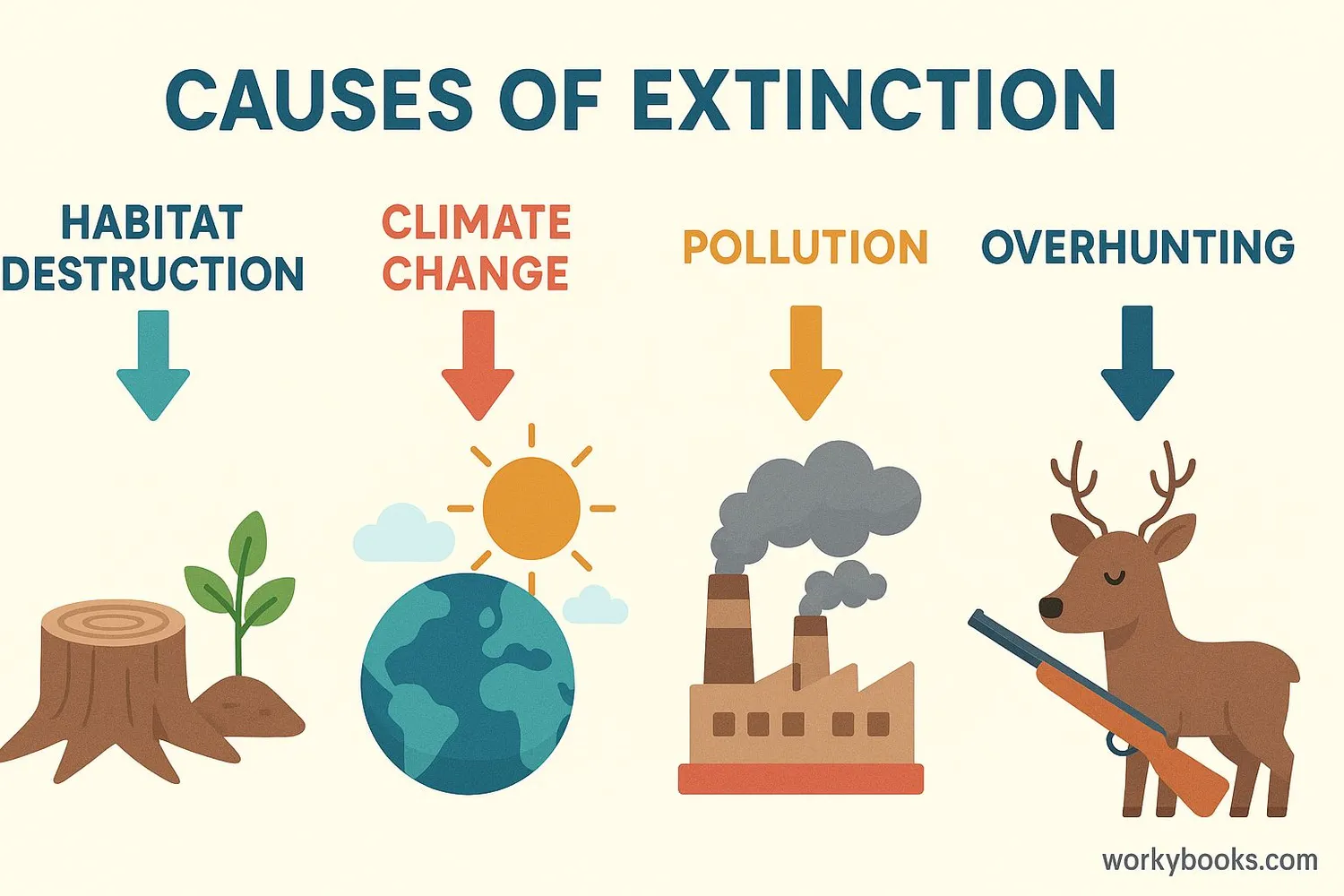
Species can become extinct for many different reasons. Some extinctions happen naturally, while others are caused by human activities. Here are the main causes:
Habitat Loss
When forests are cut down or wetlands are drained, animals lose their homes
Climate Change
Changing temperatures and weather patterns can make environments unlivable
Pollution
Chemicals, plastics, and other pollutants can poison animals and plants
Overhunting
When too many animals are hunted, their populations can't recover
Invasive Species
New species introduced to an area can outcompete native species
Human Impact
Scientists estimate that current extinction rates are 100 to 1,000 times higher than natural rates because of human activities.
Mass Extinctions
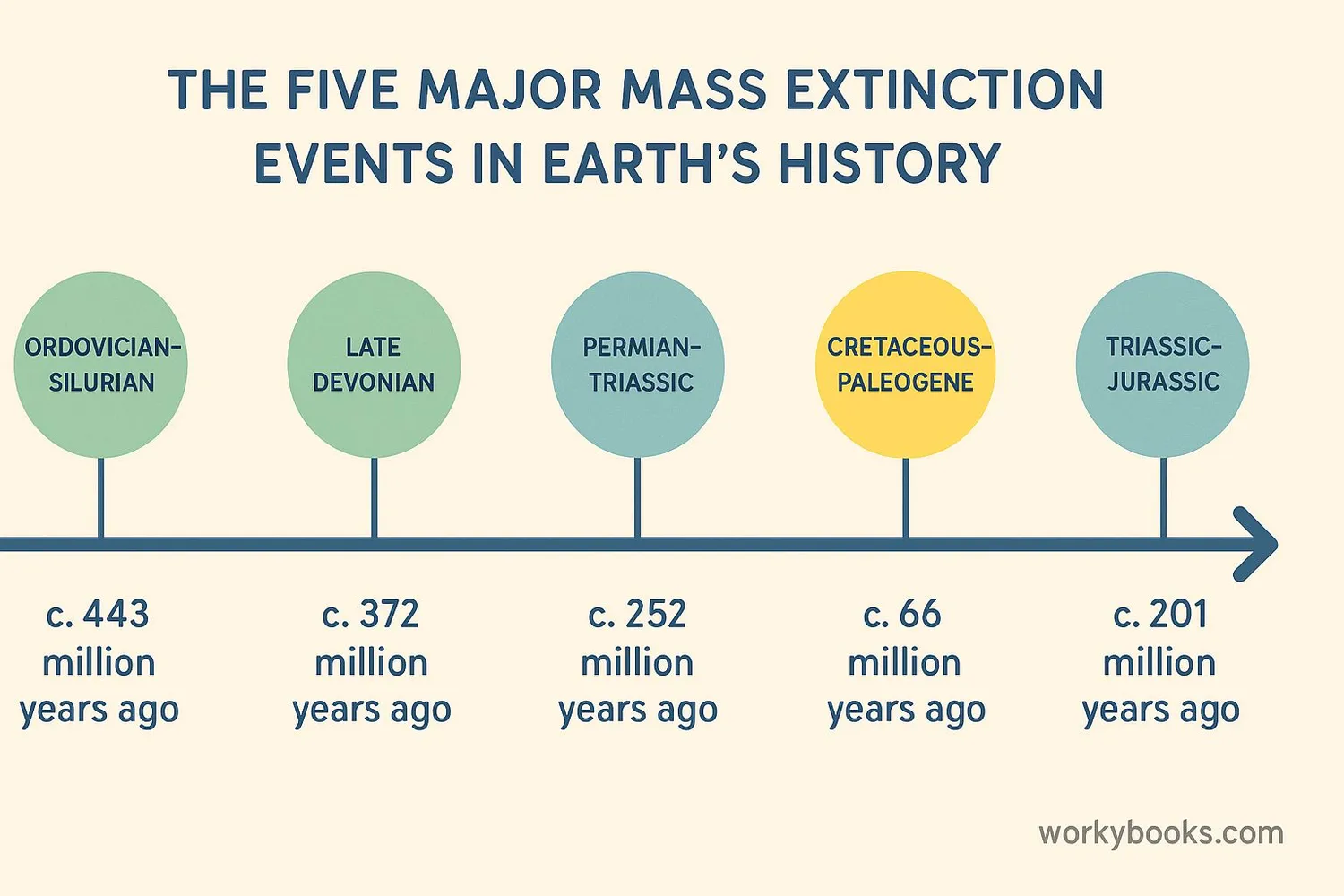
Throughout Earth's history, there have been times when huge numbers of species disappeared all at once. These are called mass extinction events. Scientists have identified five major mass extinctions:
Ordovician-Silurian
444 million years ago
86% of species lost
Late Devonian
375 million years ago
75% of species lost
Permian-Triassic
250 million years ago
96% of species lost
Triassic-Jurassic
200 million years ago
80% of species lost
Cretaceous-Paleogene
66 million years ago
76% of species lost, including dinosaurs
The most famous mass extinction happened about 66 million years ago when an asteroid hit Earth. This event caused the extinction of the dinosaurs and many other species. Scientists think we might be in the middle of a sixth mass extinction today, caused mainly by human activities.
Why Extinction Matters
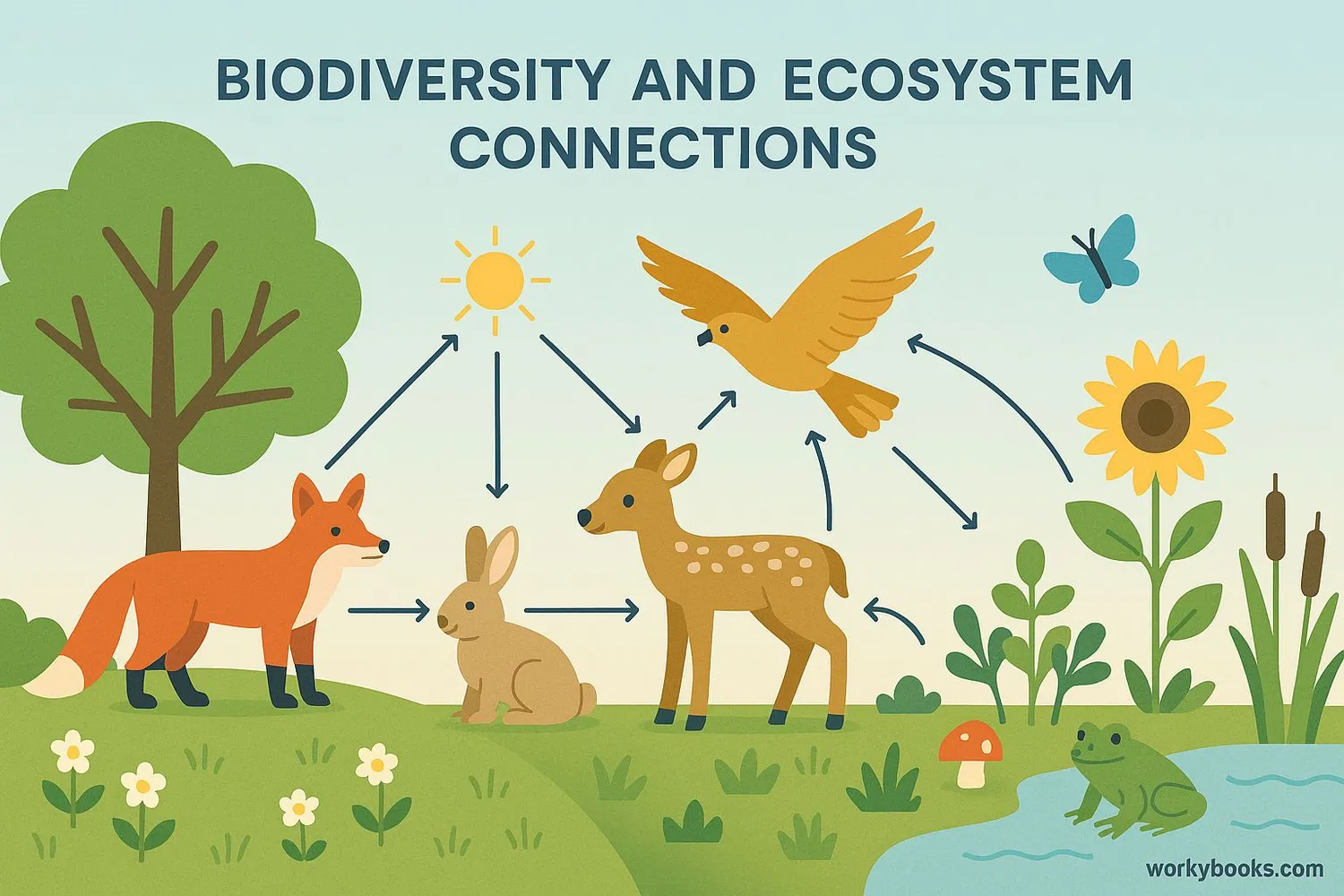
Biodiversity (the variety of life on Earth) is important for many reasons. When species go extinct, it affects entire ecosystems. Here's why biodiversity matters:
Ecosystem Health
Each species plays a role in its ecosystem like pieces in a puzzle
Food Sources
Many plants and animals provide food for humans
Medicines
Many medicines come from plants and animals
When species disappear, ecosystems become less stable. This can lead to:
• Problems with food production
• Increased spread of diseases
• Loss of potential medicines
• Less resilience to environmental changes
Protecting biodiversity helps ensure that ecosystems remain healthy and functional for future generations.
Preventing Extinction
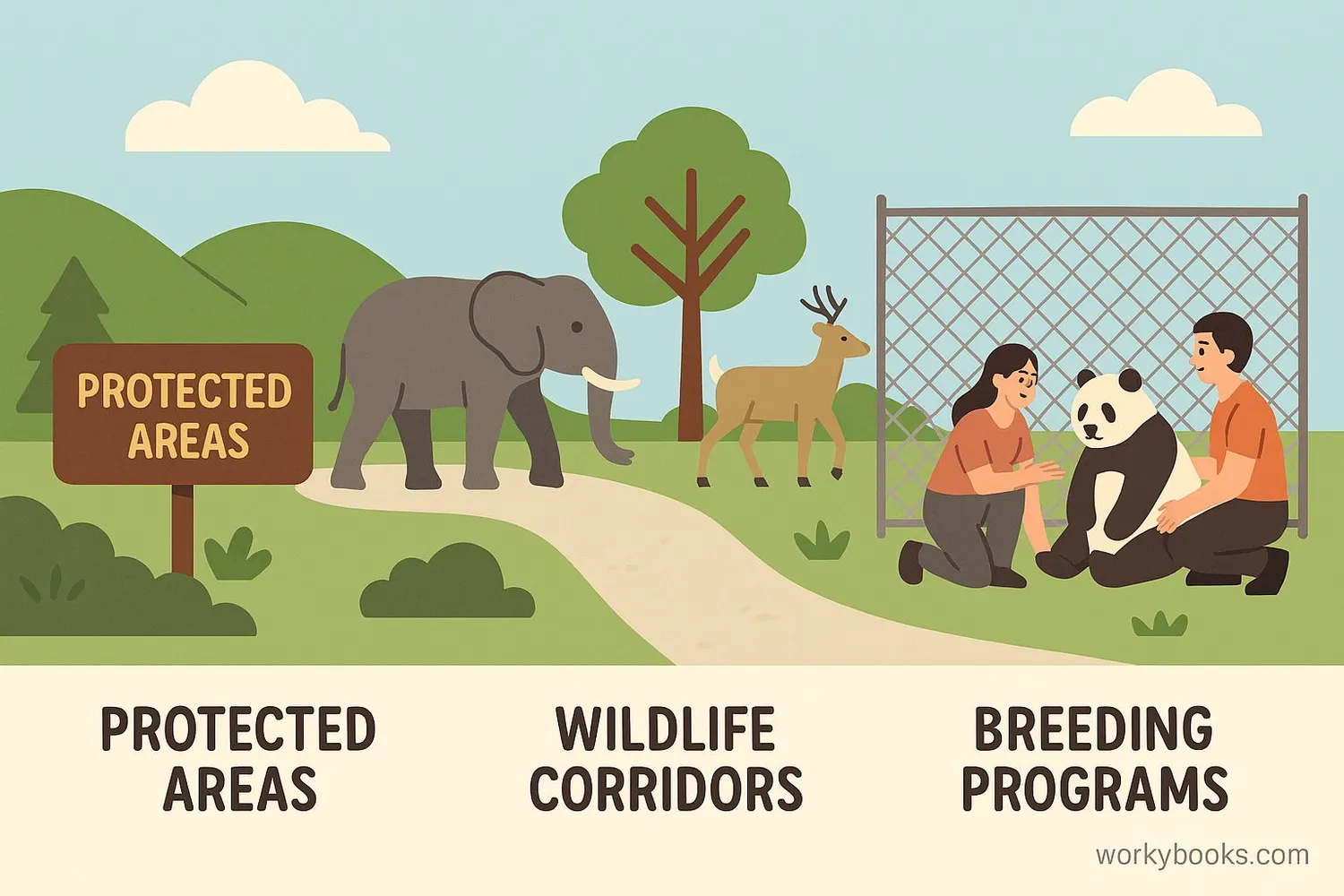
While extinction is a natural process, we can take action to protect species that are at risk. Conservation biology is the science of protecting species and their habitats. Here are some ways we can help prevent extinctions:
Protected Areas
Creating national parks and wildlife reserves
Laws & Policies
Passing laws to protect endangered species
Captive Breeding
Breeding endangered animals in zoos to reintroduce to the wild
Habitat Restoration
Repairing damaged ecosystems
Public Education
Teaching people about conservation
There have been success stories in conservation. Animals like the American bison, bald eagle, and gray wolf were once endangered but have recovered because of protection efforts. Everyone can help by learning about conservation, reducing waste, and supporting organizations that protect wildlife.
Conservation Success
The California condor was down to just 27 birds in 1987. Through captive breeding programs, there are now over 500 condors, with more than 300 living in the wild.
Extinction Quiz
Test your knowledge about extinction with this quiz! Answer all 5 questions to see how much you've learned.
Frequently Asked Questions
Here are answers to some common questions about extinction:
Interesting Facts About Extinction
Discover some amazing facts about extinction and conservation:
Rapid Loss
Scientists estimate that between 0.01% and 0.1% of all species become extinct each year. That might not sound like much, but it's 100 to 1,000 times higher than the natural extinction rate.
Not Completely Gone
While dinosaurs went extinct 66 million years ago, their descendants are still with us today! Birds evolved from small feathered dinosaurs, making them the closest living relatives to the mighty T-Rex.
Amazing Comeback
The Mauritius kestrel was down to just 4 individuals in 1974, making it the world's rarest bird. Through conservation efforts, its population has recovered to over 400 birds today.
Unknown Loss
Many species become extinct before scientists even discover them! It's estimated that millions of species, especially insects and microorganisms, remain unknown to science and may disappear before we ever learn about them.





